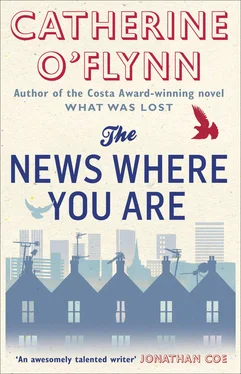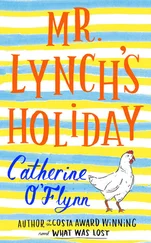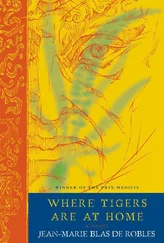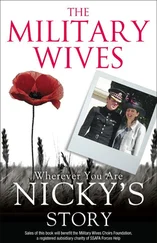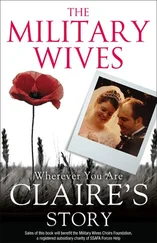‘Yes, a waste of time and effort, that’s what I am. I tell you that all the time, but still you come, every bloody week.’
‘Why are you being like this? Why can’t you just enjoy her company? Enjoy anyone’s company? Why is everything a source of suffering?’
‘Well, I’m sorry I’m not like the other grinning fools. Clapping their hands in gratitude at the dawning of each new glorious day. I’m sorry I see things differently. I must be a terrible disappointment to you.’
Frank stood looking at his mother, furious at her and himself, completely baffled as to how the situation had soured so rapidly.
‘You really are,’ he said, before picking up Mo’s coat and leaving.
He had watched the clouds of the economic downturn roll in. The press and national news bulletins had reported on the global crisis with escalating frequency and alarm. Soon the gentle patter of stories started to fall in the local news and gradually built to a downpour. There were apparently signs of recovery in the wider economy, but not, it seemed, in Frank’s region. The recession did at least lend a certain cohesion to the programme. Instead of the usual succession of non sequiturs and oddments, the ripples of cause and effect were discernible across the evening bulletins.
On Monday he reported another downturn in the local housing market. House prices had fallen from the previous quarter. On Tuesday he told viewers that four hundred staff were being laid off by a manufacturer of building and digging machinery. Tonight the story was about one of the region’s leading property firms who was halting all building projects. The company had a large portfolio of sites around the region, most notably an old football ground and the former home of a car-manufacturing plant.
Frank remembered reporting on the plans for the empty car plant just a few months previously. He recalled the artist’s impressions: glass-fronted apartments, a central plaza with a water feature and young trees, the inevitable faceless human form walking a faceless dog. He was reminded of the childhood fear he had of those faceless figures. The local councillor had expressed her satisfaction at the new jobs the project would bring and the start of the regeneration process for the area.
As he read through the report, Frank found something about the halt in development that snagged his attention. The constant flickering of change and renewal in the city was usually incremental, invisible. Here, though, the old and the new and the usually invisible transition between them was revealed, as if a projector had stopped abruptly, leaving the two frames frozen on the screen. He thought of the massive hulk of the car plant coexisting now for some undefined period of time with the artist’s impression of the new apartments and shops. The past had gone, the future had yet to come and what remained was a stalled present. The local residents were still weighed down with facial features and memories and broken cars and debts. Frank thought again of the embryonic faceless form on the artist’s impression. No others would come now; it was alone, a ghost of the future stranded in the present.
His thoughts were interrupted by the arrival in the newsroom of Donald Bucknall, greeted by ironic applause from Mustansar.
‘A cameo appearance from Bucknall! Are elections upon us already?’
Bucknall continued to his desk acknowledging Mustansar only with an arm-stretched V-sign. Over the course of his thirty years in the job, the Heart of England Reports political correspondent had succeeded in whittling down the time he spent in the news room to the bare bones. He worked chiefly from the corner table in the Old Albion, venturing out occasionally for a round of golf at the Belfry with a councillor, which he considered to be news-gathering.
After a few minutes at his computer he put his jacket back on and wandered over to Frank’s desk. ‘Come on, then, Allcroft. I’m buying. Let’s mark the occasion.’
‘What occasion?’
‘What do you mean what occasion? I hope you’re joking.’
‘It’s not your fiftieth birthday again, is it?’
‘Ah yes — a spontaneous Allcroft one-liner. Very good — soon you can stop paying for them. Come on, you insufferable tit, let’s go.’
Frank looked in amazement at Donald. ‘You don’t see them at all, do you?’
‘See what?’
‘Desks, computers, filing cabinets, phones — all the accoutrements of the modern office. They’re invisible to you, aren’t they? When you walk through those doors, what you see is a gentlemen’s club — with a few absent-minded old duffers sat about just waiting for the first sherry of the day. Donald, I have work to do.’
‘Oh please, don’t make me laugh. The only work you have to do is make sure your wig’s on straight. Do you really not know what the occasion is?’
Frank shook his head. Bucknall sighed and then in a loud voice directed at Mustansar. ‘Unlike some of these leaking glowsticks I respect the achievements of my colleagues, and today, sir, is your turn to be saluted.’
Frank continued to look at him.
‘Because today, God help us, is the twentieth anniversary of your first stumbling lurch into the world of television — a once great institution that you have single-handedly turned into a cheap joke.’
Frank grinned. ‘Is it really?’
‘It is indeed. I remember it well. You did a report on the morning bulletin and were so nervous managed to mispronounce your own name. I realized then I was witnessing the birth of a legend.’
Frank laughed. ‘Well, what can I say, Donald? I’m touched that you’ve followed my career so closely.’
‘Yes, it’s been one long slow-motion car crash I’ve been unable to tear my eyes from these past twenty years, fifteen of those as the almost perfectly named anchor. Come on, let’s get a pint.’
Frank looked at his watch. It was almost lunchtime. Donald looked around at the rest of the team.
‘Anyone else fancy a quick drink? Celebrate twenty years of Allcroft magic? Come on, Julia. Twenty golden years. Think of all the laughs you’ve shared.’
Julia looked at him. ‘I’m wracking my brain.’
‘Come on, Julia — just a little bitter lemon to keep your acid levels stocked up.’
Julia ignored him and looked at Frank. ‘I actually can’t. I need to get to the bottom of this hospital story — it’s a mess.’ She paused and then with an effort added: ‘Happy anniversary, though.’
The pub was located in a former bank, built in the days when banks were made to look like churches rather than cheap hotel lobbies. The epic grandeur was now, though, tinged with shabbiness around the edges. It was easy to marvel at the domed ceiling and not notice the occasional mouse making a dash across the tiled floor, the shrapnel of a stale Pringle gripped in its teeth. Donald ordered a pint of mild and Frank, conscious of needing to return to work, had half a shandy. They sat at a table at the back.
Donald raised his glass. ‘Happy anniversary, then, Frank. Thank God there’s still a few of the old guard about.’
Frank took a drink and then held his glass up again. ‘And to those who went before us.’
They drank to that and Donald shook his head sadly. ‘I fear another comrade is about to bite the dust, though.’
Frank frowned. ‘Don’t say you’re retiring — we’d hardly notice.’
‘Not me, you fool. Why would I retire? I’m still a spring chicken.’
‘Are you actually drawing a pension already?’
Bucknall ignored him. ‘I’m talking about Bosker.’
‘Black Glove Bosker?’
‘Being put out to pasture.’
‘No!’
Donald nodded and sipped his pint. ‘I ran into him yesterday afternoon. He’d just come from a meeting with Martin and the big bosses. They said they were restructuring and there was no place for a special correspondent any more.’
Читать дальше
